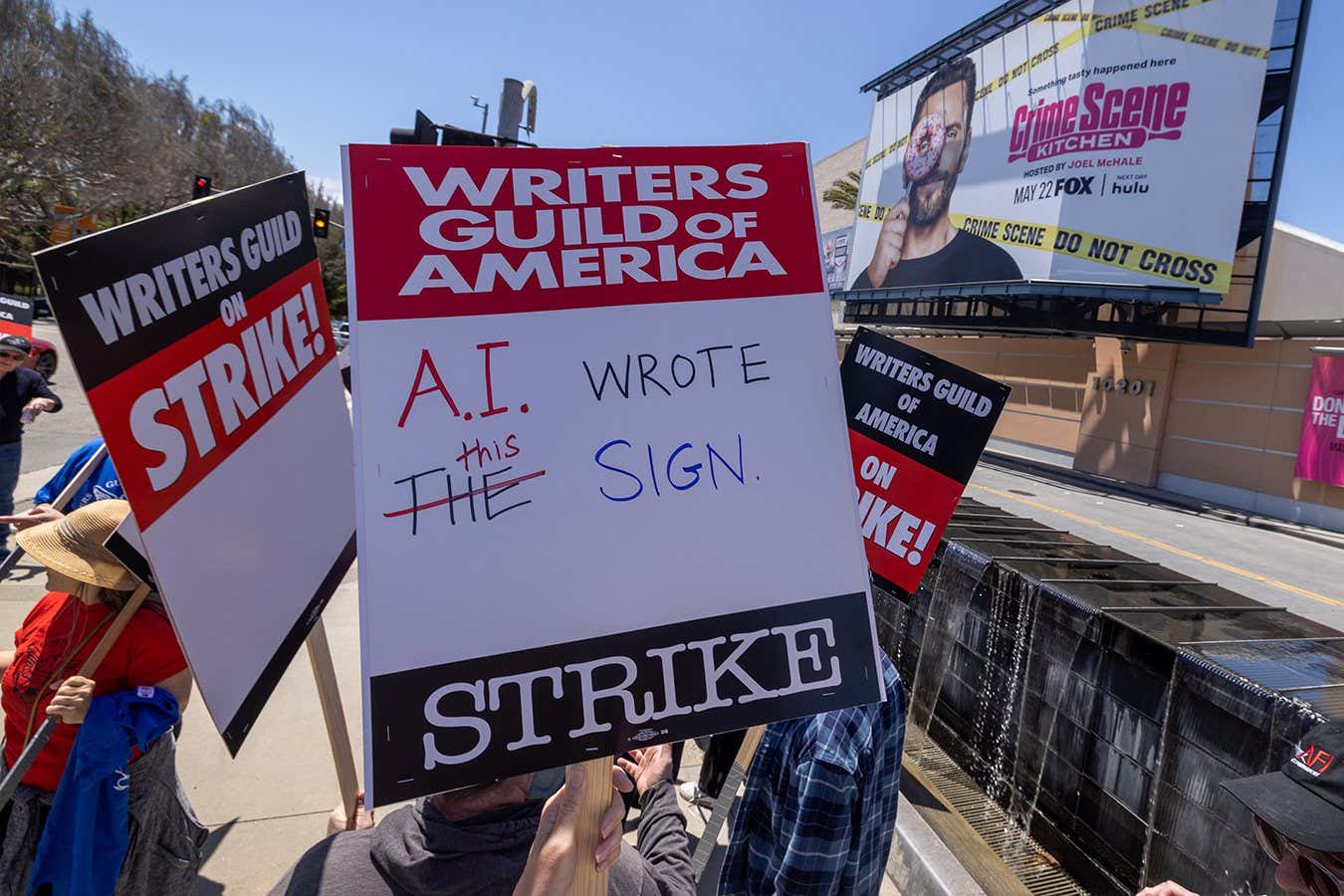The writers’ strike was initially about compensation in an era of streaming services. Now the role of AI has also become a major point of contention in negotiations between the Writers Guild of America and companies such as Disney and Netflix
By Jeremy Hsu
15 May 2023
Using existing scripts to train AIs and deploying the technology to draft new scripts are major concerns in the ongoing Hollywood writers’ strike
David McNew/Getty Images
Could AI soon write your favourite Hollywood film or streaming show? That concern is one of the issues driving a US film and television writers’ strike that has halted many productions nationwide.
The Writers Guild of America (WGA), a labour union representing writers who primarily work in film and television, began the work strike this month after reaching an impasse in negotiations with the Alliance of Motion Picture and Television Producers that represents the US entertainment industry. Part of the disagreement revolves around a WGA proposal to ban the industry from using AIs such as ChatGPT to generate story ideas or scripts for films and shows – the union wants to ensure that such technologies do not undermine writers’ compensation and writing credits.
“The fear is that AI could be used to produce first drafts of shows, and then a small number of writers would work off of those scripts,” says Virginia Doellgast at Cornell University in New York.
Advertisement
The WGA has also proposed that any scripts covered by the union’s collective bargaining agreement cannot be used to train AIs. There has already been broader resistance against tech companies scraping online content for free to train large language models and other generative AIs on text and images originally created by humans.
Hollywood studios on the other side of the negotiating table include companies such as Walt Disney Studios and Warner Bros. Studios, along with streaming services such as Netflix, Apple TV+ and Amazon Prime Video. The industry rejected the initial WGA proposal and countered with an offer to hold annual meetings to discuss new technological changes.
“This is a pretty weak commitment – the writers would have little power in those discussions to influence how the technologies are used,” says Doellgast. “The studios don’t want to negotiate hard limits on how they will use AI.”
